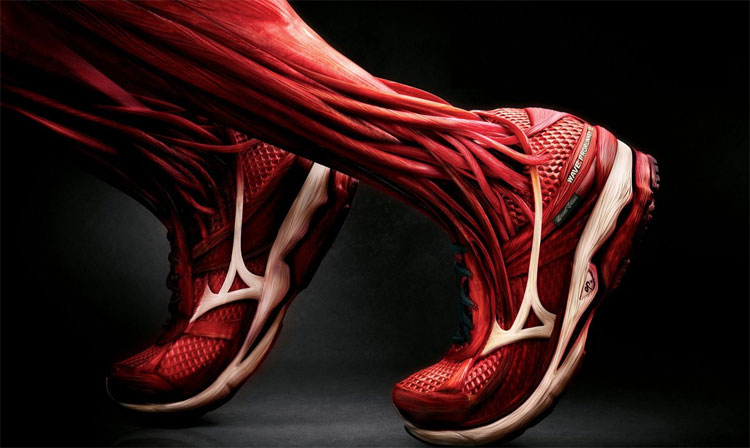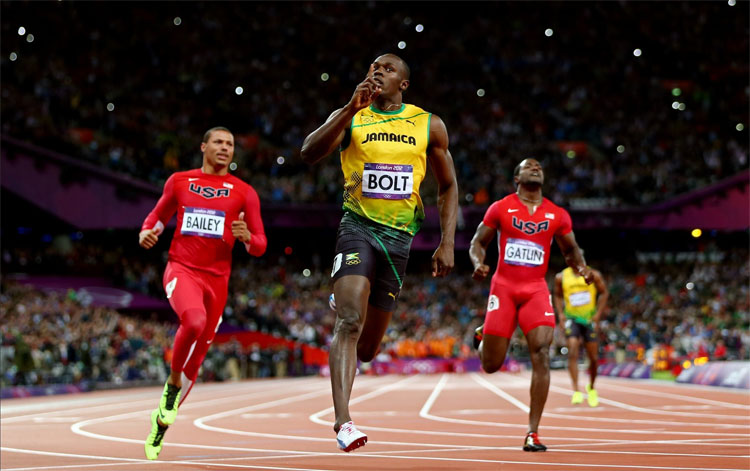How does weight of shoes affect your speed?
Wearing a pair of heavy shoes obviously will cost you more energy. However, how exactly is your speed affected?
Back in the 1980s, the study showed that if you wear a shoe that weighs more than 100 grams (3.5 ounces), you will burn 1% more energy. In theory, the speed of movement is inversely proportional to the amount of energy consumed, so your velocity will also be reduced by 1%.
However, this theory has hardly been proven in practice. This became a driving force for Professor Wouter Hoogkamer and his team at the research laboratory Locomotion of Colorado Boulder University to conduct a study to test the authenticity of the hypothesis.

Movement speed is inversely proportional to the amount of energy consumed, so your speed will also be reduced by 1%.
Research shows that athletes only recognize volume changes if they hold shoes on their hands, but when they wear them on their feet, they don't. Each individual will have to perform 2 tests, one to test the energy consumed when running at the maximum speed, and the second is the challenge of running 3000m. These 2 challenges take place on 2 different days, the weight of 2 shoes is also different.
As expected, the results show that for every 100 grams of shoes attached, the energy consumption increased by 1.11% and the 3,000-meter challenge completion time increased by 0.78% (i.e. reduced velocity 0.78%).
It can be seen that compared to the original hypothesis, 1.11 and 0.78 are not necessarily without differences. The reason for this error is because the speed measured at the two challenges is different. This proves that the effect of shoe weight on results depends on the speed that the athlete uses. Indeed, at the energy consumption test, when asking volunteers to run at the measured average speed at a challenge of 3,000 meters, the energy consumption now increased by only 0.8% (compared to 1.11% at the first time).
From the results of the study, it can be seen that with the current marathon world record (3km) is 2:02:57 when using shoes that weigh 230 grams, if reducing 100 grams, the time will decrease by 57.5 seconds. And if you go barefoot, it will save 2 minutes and 12 seconds. Obviously, without shoes, you will lose the support of mobility as well as the strength of your feet.

We will still have the advantage of wearing shoes if the track surface is lined with 10mm EVA foam.
In fact, according to another study by the group, we will still have the advantage of wearing shoes if the track surface is lined with 10mm EVA foam (a light and smooth synthetic resin, often used as a buffer). ).
With improvements in the future, the volume of running shoes will definitely decrease, and you can expect better performances from athletes around the world.
- What happens if everyone on Earth dances for a while?
- Mistakes when often wearing closed shoes
- A 2,000-year-old Roman shoe resembles modern sports shoes
- Can you get a blood infection when you try on shoes but not all?
- Biodegradable shoes
- Video: What happens if you throw acid on your shoes?
- Video: Shoe history from 7000 years BC to modern
- Shoes for lazy people
- 'Variable turn-on' shoes with ... 10,125 usage
- Fun unexpected fact about shoes you may not know yet
- Nike will design self-tie shoes as in 'Back To The Future'
- Discover new factors that determine the weight of babies
 'Fine laughs' - Scary and painful torture in ancient times
'Fine laughs' - Scary and painful torture in ancient times The sequence of numbers 142857 of the Egyptian pyramids is known as the strangest number in the world - Why?
The sequence of numbers 142857 of the Egyptian pyramids is known as the strangest number in the world - Why? History of the iron
History of the iron What is alum?
What is alum?